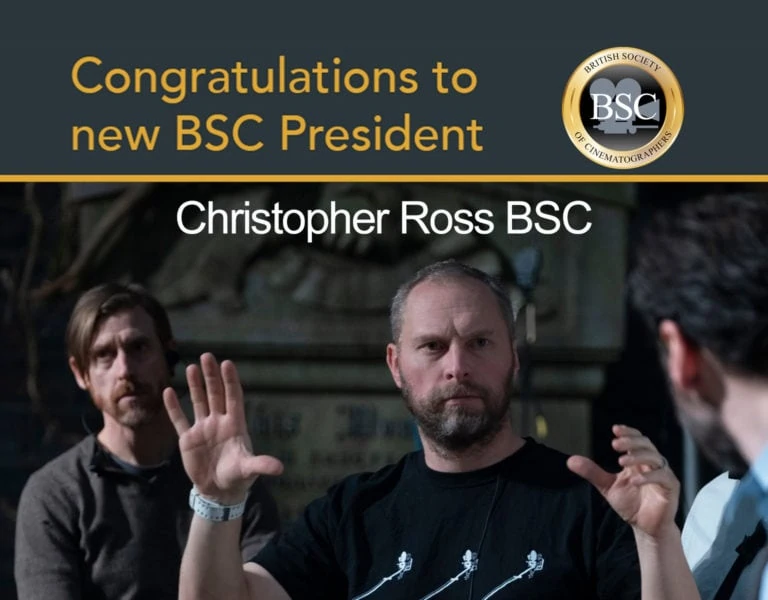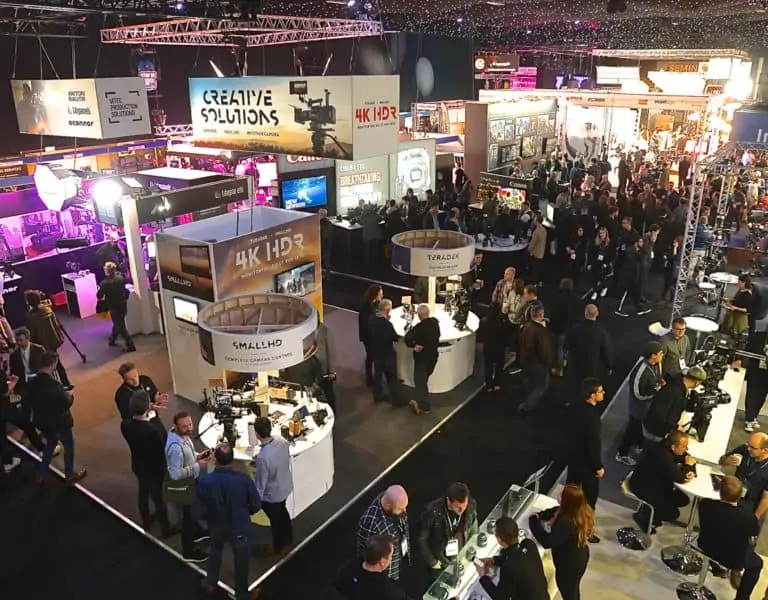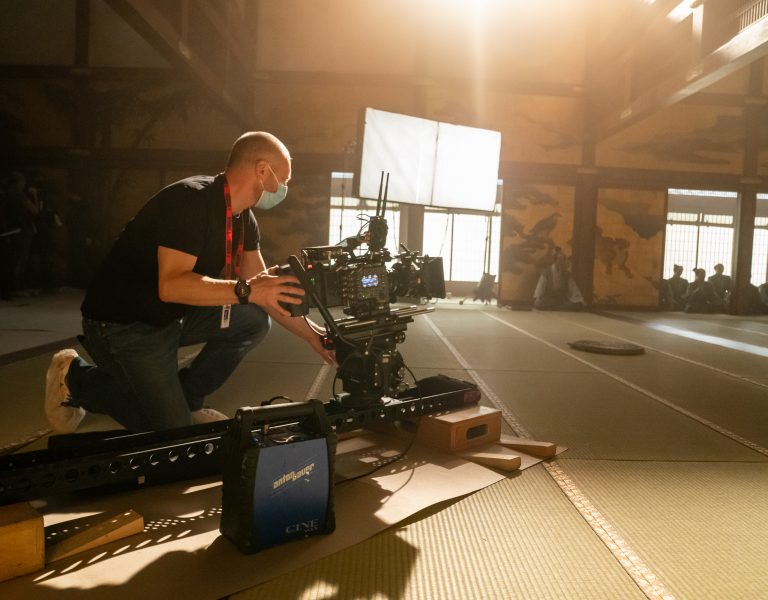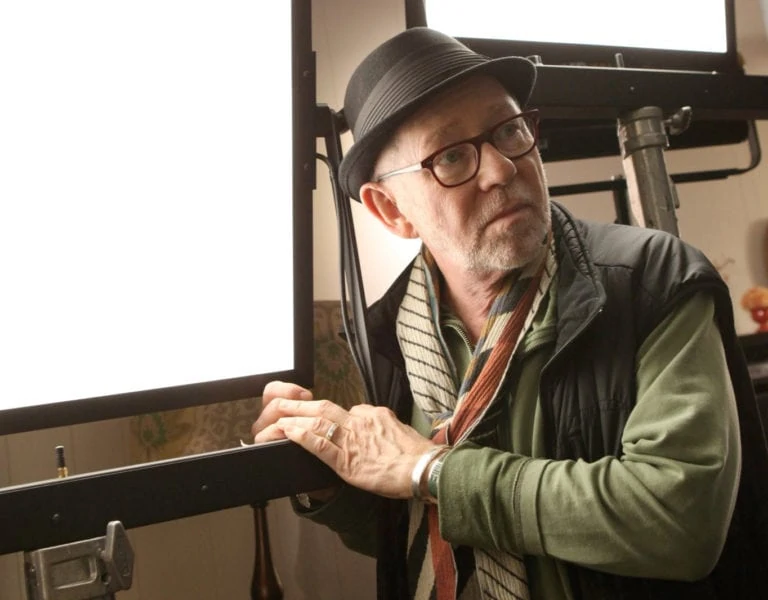Christopher Ross BSC reflects on the recent activity surrounding the writers’ strike and his visit to Cannes Film Festival along with the talent celebrated there including Pierre Angénieux Tribute Award recipient Barry Ackroyd BSC.
labour
/ˈleɪ.bər/
Noun
- work, especially physical work.
“the price of repairs includes labour, parts, and VAT”
- workers, especially manual workers, considered collectively.
“non-union casual workers”
- the process of childbirth from the start of uterine contractions to delivery.
“the woman’s labour lasted 12 hours”
- the collective noun for a group of moles.
“a labour of moles toils with the earth”
I sit down to write this month’s Perspective having just returned from the Cannes Film Festival, where former President Barry Ackroyd BSC received the 2023 Pierre Angénieux Tribute Award for Cinematography. This year’s festival marks the 10th anniversary of the award, as the esteemed lens manufacturer continues to commemorate the memory and legacy of Pierre Angénieux and to celebrate the outstanding contribution that cinematographers make to cinema around the world.
Barry Ackroyd BSC’s contribution is unquestionable and his award-winning back catalogue crosses genres and runs the full spectrum of filmmaking from documentaries to television, commercials to cinema. His work alongside director’s Kathryn Bigelow and Paul Greengrass is frenetically immersive and viscerally emotional, whilst his collaborations with Ken Loach are dignified studies of humanity centred with compassionate observation and grace.
The second award at the evening’s event is the Angénieux Special Encouragement Award, highlighting the work of a promising young cinematographer at the start of their cinematic journey. This year’s recipient is the excellent Haya Khairat, a young Egyptian cinematographer, whose work since graduating from the High Cinema Institute of Cairo is illustration of a bright future.
It is a rare sight for cinematographers and their work to be showcased at a film festival, especially one as illustrious as Cannes with its red carpets down the Croisette. It is truly an honour to sit amongst an audience of filmmakers and technologists in celebration of these two great cinematographers.
Fittingly, as Barry was taking the stage to receive his honour, just across the hallway was the world premiere of Ken Loach’s new film The Old Oak (photographed by Robbie Ryan BSC ISC), in competition for the festival’s Palme d’Or. Ken and Barry shared one of British cinema’s most enduring partnerships, collaborating on 12 theatrical films over a period of 20 years together. Their dedication to addressing socio-political issues and how these issues influence the lives of ordinary people has left an indelible print on world cinema, railing against injustice and the misuse of power.
In Riff Raff we are asked to confront safety in the workplace and how cutting corners risks lives; Ladybird, Ladybird has audiences questioning the work of social services and the potential harm that comes from their interventions; and Palme d’Or winner The Wind that Shakes the Barley immerses us in the cruelty of civil war as unity turns to enmity and brothers take arms against one another. Re-watching these 12 films provides a masterclass in humanity and compassion. In an era where society is polarised and in opposition with itself, the films that Ken and Barry made together are as relevant now as they were on their first release.
Bread and Roses is a particularly poignant example from the Loach-Ackroyd collaboration; considering the struggle that many unions are having both in the UK and overseas when renegotiating contracts, terms and working conditions. The fact that negotiations have collapsed for rail workers, nurses, teachers, doctors, university lecturers and airport staff shows that society has a real problem on its hands; mandates for strike action only take place when negotiations reach stalemate, and stalemates tend to occur when the diplomacy is polarised.
It is two weeks since I returned from Cannes, one of the world’s major film markets, and the Writers Guild of America (WGA) strike has just tipped into its second month. Hopefully by the time this edition hits your doorstep and inbox, the WGA and the AMPTP will have been back at the negotiating table and a deal will have been struck. In the meantime, however, every day the strike continues the list of on-hold productions gets bigger and the number of employed artists and technicians gets smaller.
The WGA are fighting a similar battle faced by many unions, both now and historically: that of fair remuneration for a fair day’s labour. Writing may not be the first job description that you think of in terms of a labour union, but they still toil under the shadow of a looming deadline and substitute carpal tunnel syndrome for the blisters from a pickaxe. They, and many others, are campaigning to be treated fairly, with equal pay for equal work, with reasonable contracts that ensure that a career spent in service to an industry does not involve destitution as an end result.
In the meantime, as work proves scarcer, it is important that we look out for each other and offer support wherever and whenever it is needed. It may take time, but diplomacy will triumph, the negotiations will be successful, and a new wave of productions will flow. As with the last century of cinema, invigorated and impassioned writers will once again be given creative licence and the dream factories will be back at full capacity.
Onwards!










